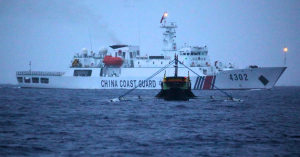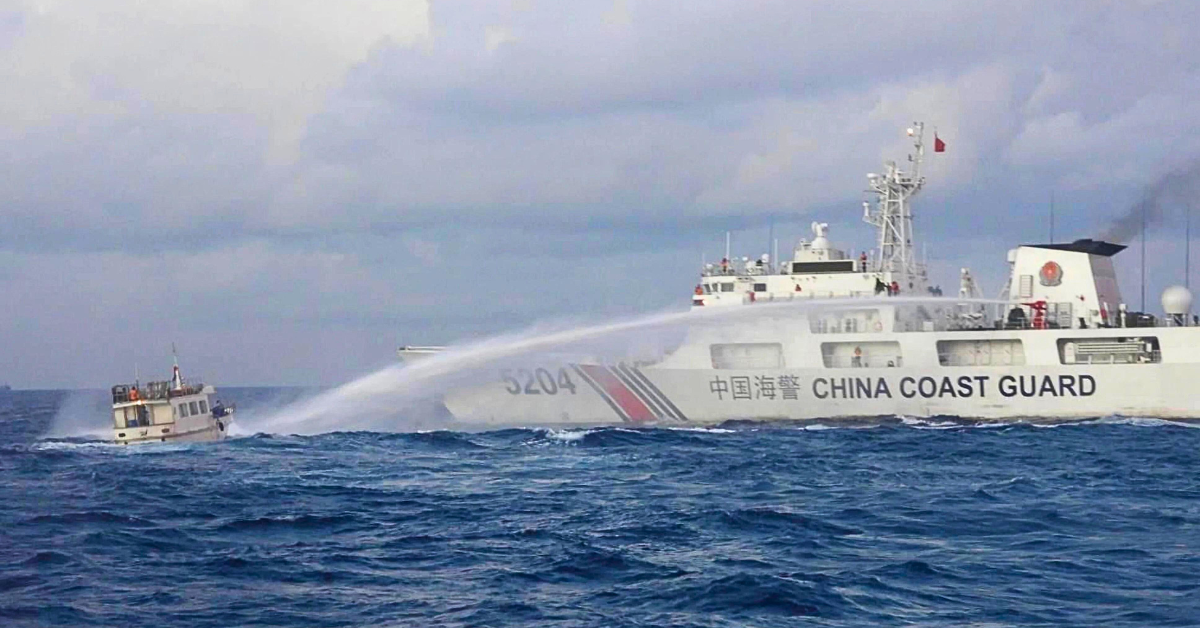October 30, 2023
by Marinel Condino
Amidst the vast expanse of the West Philippine Sea, a subtle but significant struggle unfolds, placing the Philippines squarely in the midst of competing interests and geopolitical tensions. This region, home to the Spratly Islands and a crucial conduit for global trade, has become a focal point for the maritime ambitions of various nations.
In recent years, China’s assertiveness in the area has escalated, marked by the adoption of aggressive tactics by its navy and coast guard. These actions, which challenge established international norms, reflect China’s determination to extend its influence and control over strategic waters, disregarding the concerns of neighboring countries and the broader international community.
In response, the Philippines, alongside allies like the United States and Japan, has voiced firm but measured opposition to China’s actions. Calls for adherence to international law and the avoidance of provocative behavior have resonated in diplomatic circles, with the Philippines’ Senate passing resolutions condemning China’s conduct and emphasizing the importance of safeguarding national sovereignty.
While tensions simmer, the primary focus remains on seeking diplomatic avenues for resolution. Both the Philippines and its allies recognize the value of dialogue and negotiation in addressing disputes and preserving regional stability. The overarching goal is to prevent further escalation and uphold the principles of international law.
The evolving situation in the West Philippine Sea serves as a poignant reminder of the complexities inherent in managing geopolitical tensions. The determination of nations to uphold the rule of law and pursue peaceful resolutions will ultimately determine the trajectory of the region and its broader global significance.

The West Philippine Sea, encompassing the Spratly Islands and other strategic waterways, holds immense economic and geopolitical importance. Its waters serve as vital arteries for global trade, facilitating the movement of goods valued at trillions of dollars annually. Control over these waters confers influence over international commerce and strategic military positioning, making them coveted prizes for nations seeking to expand their sphere of influence.
China’s assertive behavior in the region has raised significant concerns among neighboring countries, including the Philippines. Instances of Chinese vessels intimidating Filipino fishermen and encroaching into Philippine territorial waters have heightened tensions and strained diplomatic relations. Moreover, the construction of artificial islands and military installations by China in disputed waters has further exacerbated the situation, fueling fears of potential military conflict.
In response to China’s actions, the Philippines has sought to strengthen alliances and enhance its maritime capabilities. Collaborative efforts with the United States and like-minded nations have aimed to bolster maritime security and promote stability in the region. Resolutions passed by the Philippines’ Senate reaffirm the nation’s commitment to defending national sovereignty and upholding international law in the face of external threats.
Despite these efforts, the path to resolution remains challenging. Diplomatic negotiations have yielded limited results, and tensions persist beneath the surface. The risk of miscalculation or escalation looms large, underscoring the urgent need for continued vigilance and commitment to peaceful coexistence.
As the silent tension in the West Philippine Sea persists, the stakes have never been higher. The decisions made today will shape the future of the region for generations to come. It is incumbent upon all stakeholders to work together in pursuit of a peaceful and prosperous future, where the seas remain open and free for all.

